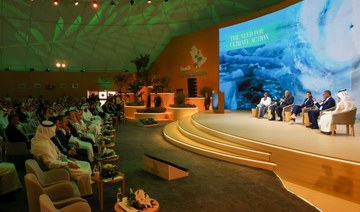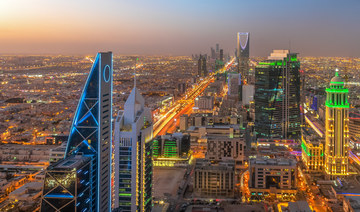RIYADH: Saudia, formerly Saudi Airlines, is among the dozen firms bidding for 2 million tons of carbon credits at an auction in Nairobi on Wednesday, billed as the world’s largest sale of its kind.
The auction in the Kenyan capital was organized by the Regional Voluntary Carbon Market Co., founded by the Public Investment Fund and Saudi Tadawul Group.
RVCMC CEO Riham ElGizy said: “We need to use every tool at our disposal to tackle the devastating impacts climate change is already having. This auction demonstrates the role voluntary carbon markets can play in driving funding where it is most needed, to deliver climate action and improve livelihoods across the Global South.”
Despite being a small emitter, contributing to less than 1 percent of annual global emissions, Kenya has recently witnessed droughts that killed crops, wildlife and animals.
RVCMC chose Kenya to stress the need for investments in climate projects.
Carbon credits allow companies to emit a specific amount of carbon dioxide or other harmful gases — with one credit the equivalent of one ton of emissions. They are known to be generated through projects such as tree planting or using cleaner cooking fuel.
“Today we have completed the biggest ever auction of high-quality voluntary carbon credits, selling over 2.2 million tons. This follows on from the 1.4 million tons auctioned in October last year,” ElGizy said.
Upon being sold, the certified credits will either fund projects that avoid emissions by using sustainable technologies or eliminate carbon from the atmosphere altogether, according to a statement.
“Our aim is to be one of the largest voluntary carbon markets in the world by 2030, one that enables compensation of hundreds of millions of tons of carbon emissions per year and contributes to global net zero goals. Our achievements to date, in such a brief period, demonstrate commitment to long-term success, and ability to deliver on our ambitions,” the company CEO added.
In October, the Kingdom’s sovereign fund auctioned 1.4 million tons of carbon credits during the 6th edition of the Future Investment Initiative conference in Riyadh.
Out of all participants, petroleum refineries firm Saudi Arabian Oil Co., Olayan Financing Co., and mining company Ma’aden purchased the maximum carbon credits.
The move came as the PIF aims to develop 70 percent of Saudi Arabia’s green energy capacity to align with the Saudi Vision 2030.
The auction also aligns with the sovereign fund’s goal to draw investments and develop innovations to tackle the effects of climate change and follows the completion of the wealth fund’s $3 billion inaugural green bond sale.























